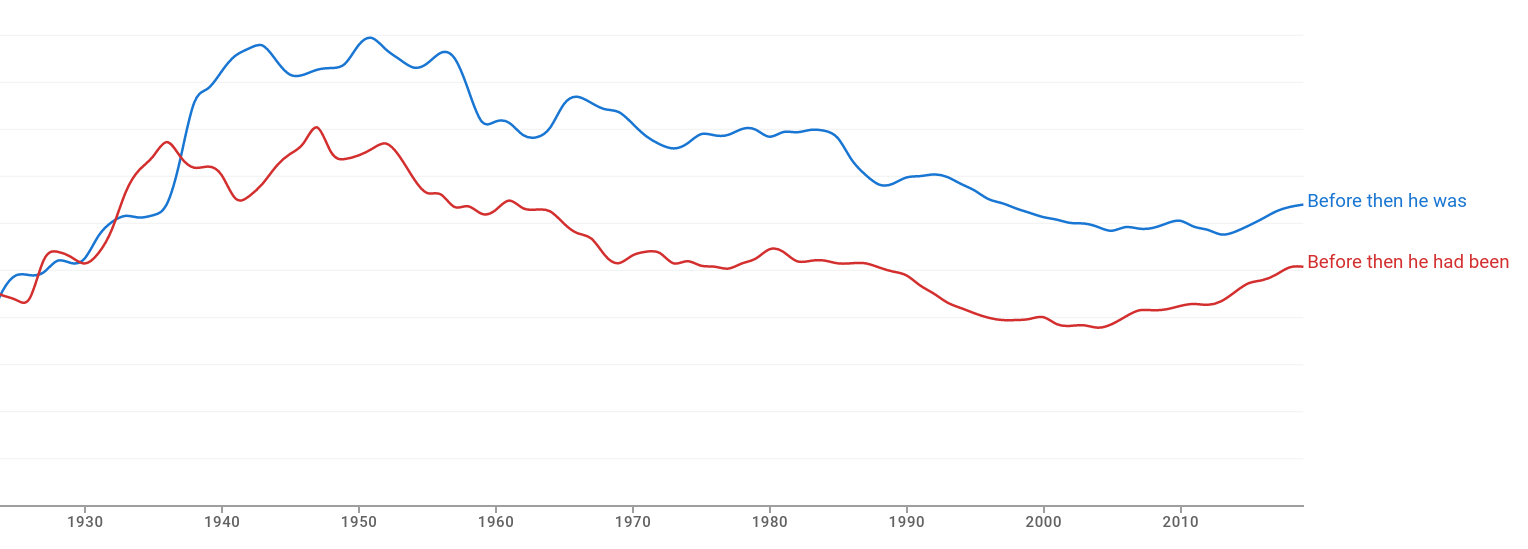Past Perfect in the first example is fine (but completely unnecessary - I certainly don't think it's "better" than Simple Past ...she saw nursing become...).
OP's second example might be okay, but not as a completely isolated utterance. Past Perfect is only valid in contexts where it refers to a time before some other time in the past that's clearly referenced by surrounding text.
In the first example, she saw something before her death, which is itself in the past. There's no such context for the second utterance. But even if there was, you wouldn't necessarily want to use Past Perfect.
Note that by definition, then identifies a point in past time, so Past Perfect is probably always "acceptable" in any sentence that starts with Before then, he [was | had been]... But as this chart shows, native Anglophones are more likely to choose Simple Past anyway...

Many learners over-use Past Perfect because they deliberately look out for contexts where they're able to use it (and the "rule" is so simple it's easy to identify acceptable contexts). Native speakers don't consciously think about such things much anyway, but if learners want to sound more like native speakers they should restrict Past Perfect to contexts where it's needed (use it when you must, not when you can).

